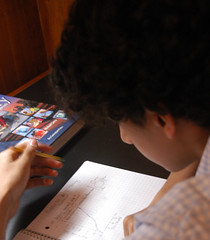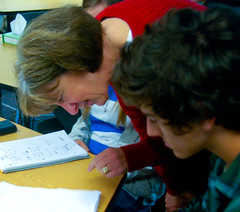First classes are still weeks away, but campus is buzzing with anticipation and activity. At a new faculty orientation panel discussion Thursday, I offered a quick sketch of school history, and how we got "here." With very full enrollment, successful annual giving and capital projects, and a stable, talented faculty, Proctor can be described as "prosperous," but that was not always the case. Experiential education programs and a uniquely human ethos may be key contributors to our institutional health, but even these qualities are offspring of an entire
definition of education that is articulated in our mission. Lots of schools say, "We're good, because we're challenging." Proctor says, "We're challenging because we're committed to our students' success."

So, my history lesson highlighted the evolution of what we now call Learning Skills support over the past seven decades. But let me attempt to articulate a delicate nuance..... It's not the tutorials that have happened thousands of times since 1937 that makes the difference; it is the fact that the school offers and
believes in support that creates a community in which everyone benefits. You don't need to be enrolled in Learning Skills to benefit from the program; everyone at Proctor benefits because our entire educational philosophy is dedicated to student success.
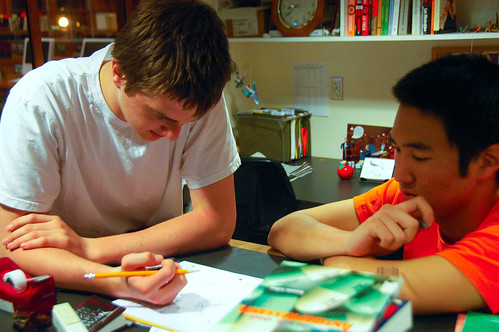
Here's an extension of this thinking that may illuminate my point: many people are attracted to Proctor because of high-profile experiential programs without specific intention of going on Ocean Classroom, Mountain Classroom, Proctor in Spain, France, Costa Rica or Morocco. They are attracted to us because the school's definition of education, college preparation and life preparation is so enlighted that we would offer these opportunities.
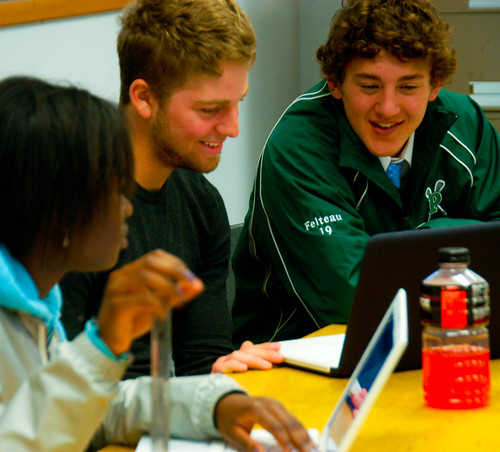
I am arguing that all of Proctor's unique qualities have a common antecedent: a fiercely independent commitment to student-centered academic success. Ironically, the academic support systems offered in the 1940s and '50s were inspired by Headmaster Lyle Farrell's association with Samuel T. Orton, who prescribed a remedial approach to reading disabilities. Proctor's support systems today have little to do with remediation. Today we hosted a writing instruction workshop by Linda Hecker of Landmark College's Institute for Research and Training.
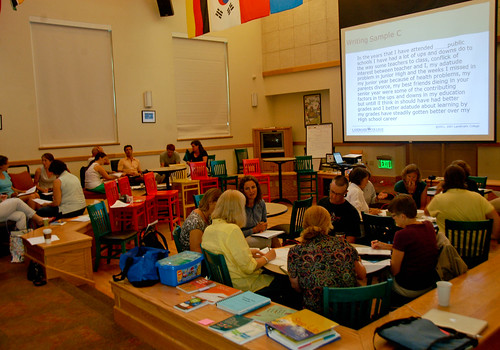
The science of teaching has evolved to a place where practices that benefit students with learning issues benefit all. What high school student doesn't benefit from coaching strategies, exercising executive skills, breaking writing down into specific steps and collaborative work?
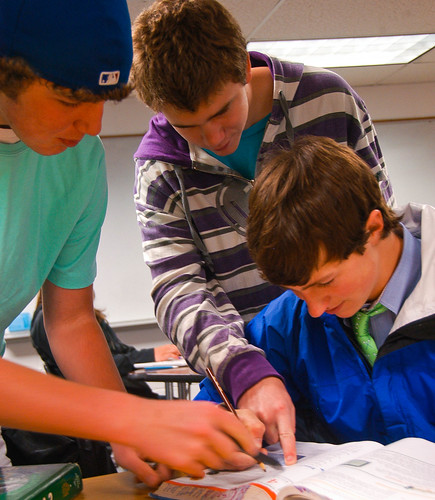
The teachers who attended Friday's workshop emerged with concrete strategies for teaching writing by students who bring every possible academic asset and frustration. But this science is in its infancy. We adults will be studying and learning better strategies and skills as long as Proctor serves its mission and prospers.














